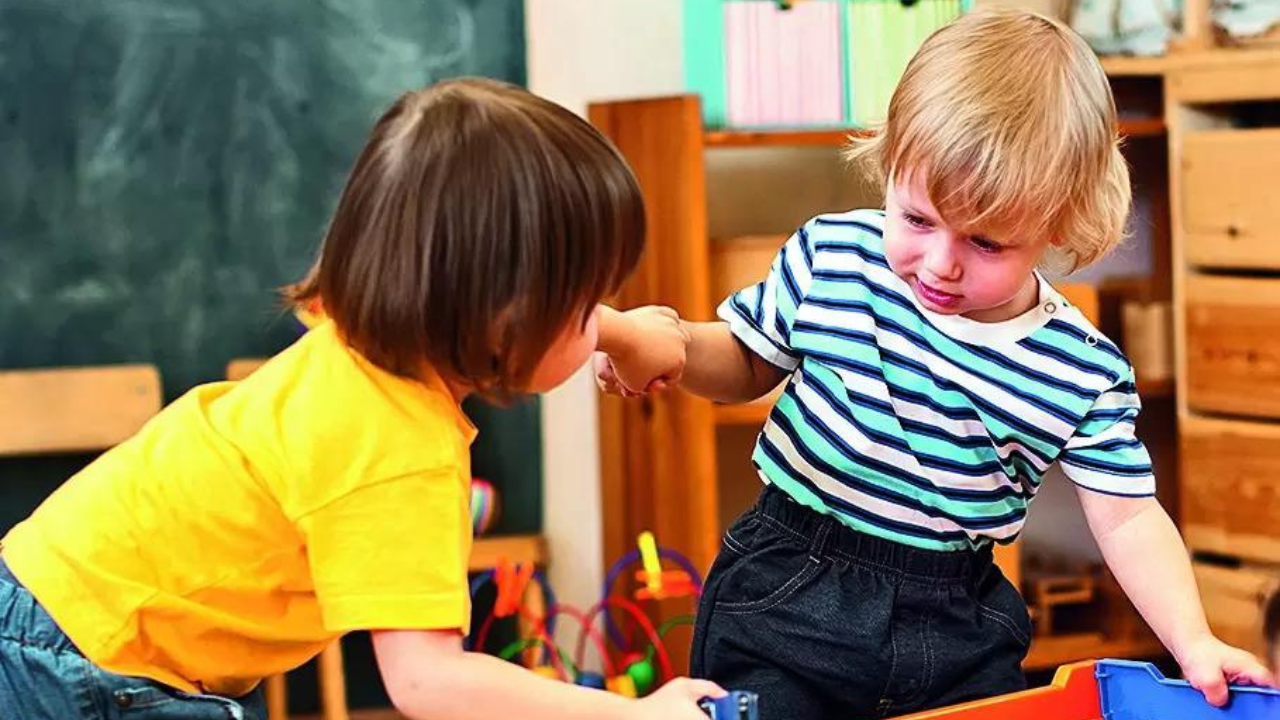The pandemic’s babies, toddlers and preschoolers are now school-age, and the impact on them is becoming increasingly clear: Many are showing signs of being academically and developmentally behind. Interviews with more than two dozen teachers, pediatricians and early childhood experts in the US depicted a generation less likely to have age-appropriate skills – to be able to hold a pencil, communicate their needs, identify shapes and letters, manage their emotions or solve problems with peers.
A variety of scientific evidence has also found that the pandemic seems to have affected some young children’s early development.Boys were more affected than girls, studies have found. “I definitely think children born then have had developmental challenges compared to prior years,” said Dr Jaime Peterson, a pediatrician at Oregon Health and Science University. “We asked them to wear masks, not see adults, not play with kids. We really severed those interactions, and you don’t get that time back for kids.”
Researchers said several aspects of the pandemic affected young children – parental stress, less exposure to people, lower preschool attendance, more time on screens and less time playing. Brook Allen, in Martin, Tennessee, has taught kindergarten for 11 years. This year, for the first time, she said, several students could barely speak, several were not toilet trained, and several did not have the fine motor skills to hold a pencil. Children don’t engage in imaginative play or seek out other children the way they used to, said Michaela Frederick, a pre-K teacher for students with learning delays in Tennessee. She’s had to replace small building materials in her classroom with big soft blocks because students’ fine motor skills weren’t developed enough.
Perhaps the biggest difference Lissa O’Rourke has noticed among her preschoolers in Florida has been their inability to regulate their emotions: “It was knocking over chairs, it was throwing things, it was hitting their peers, hitting their teachers.” One explanation for young children’s struggles, experts say, is parental stress during the pandemic. A baby who is exposed to more stress will show more activation on brain imaging scans in “the parts of that baby’s brain that focus on fear and focus on aggression”, said Rahil D. Briggs, a child psychologist. That leaves less energy for parts of the brain focused on language, exploration and learning, she said. Time on screens also spiked during the pandemic as parents juggled work and children were cooped up at home. Experts believe that this affected attention spans and fine motor skills.
It’s too early to know whether young children will experience long-term effects from the pandemic, but researchers say there are reasons to be optimistic. “It is absolutely possible to catch up,” said Dr. Dani Dumitriu, a pediatrician at Columbia. Sarrah Hovis, a preschool teacher in Michigan. said she has seen great progress. By the end of this year, some of her students were counting to 100, and even adding and subtracting. “If the kids come to school,” she said, “they do learn.”
A variety of scientific evidence has also found that the pandemic seems to have affected some young children’s early development.Boys were more affected than girls, studies have found. “I definitely think children born then have had developmental challenges compared to prior years,” said Dr Jaime Peterson, a pediatrician at Oregon Health and Science University. “We asked them to wear masks, not see adults, not play with kids. We really severed those interactions, and you don’t get that time back for kids.”
Researchers said several aspects of the pandemic affected young children – parental stress, less exposure to people, lower preschool attendance, more time on screens and less time playing. Brook Allen, in Martin, Tennessee, has taught kindergarten for 11 years. This year, for the first time, she said, several students could barely speak, several were not toilet trained, and several did not have the fine motor skills to hold a pencil. Children don’t engage in imaginative play or seek out other children the way they used to, said Michaela Frederick, a pre-K teacher for students with learning delays in Tennessee. She’s had to replace small building materials in her classroom with big soft blocks because students’ fine motor skills weren’t developed enough.
Perhaps the biggest difference Lissa O’Rourke has noticed among her preschoolers in Florida has been their inability to regulate their emotions: “It was knocking over chairs, it was throwing things, it was hitting their peers, hitting their teachers.” One explanation for young children’s struggles, experts say, is parental stress during the pandemic. A baby who is exposed to more stress will show more activation on brain imaging scans in “the parts of that baby’s brain that focus on fear and focus on aggression”, said Rahil D. Briggs, a child psychologist. That leaves less energy for parts of the brain focused on language, exploration and learning, she said. Time on screens also spiked during the pandemic as parents juggled work and children were cooped up at home. Experts believe that this affected attention spans and fine motor skills.
It’s too early to know whether young children will experience long-term effects from the pandemic, but researchers say there are reasons to be optimistic. “It is absolutely possible to catch up,” said Dr. Dani Dumitriu, a pediatrician at Columbia. Sarrah Hovis, a preschool teacher in Michigan. said she has seen great progress. By the end of this year, some of her students were counting to 100, and even adding and subtracting. “If the kids come to school,” she said, “they do learn.”






